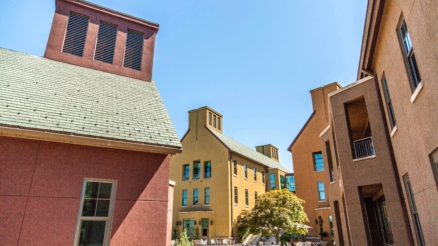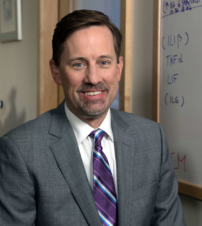The Tuveson Lab
A Lustgarten Distinguished Lab at Cold Spring Harbor

In 2012, the Lustgarten Foundation established a world-class dedicated laboratory at Cold Spring Harbor Laboratory (CSHL) to focus exclusively on pancreatic cancer research.
The CSHL, located in scenic Cold Spring Harbor, New York, is a leading biomedical research and education lab housing programs in cancer, neuroscience, plant biology and quantitative biology. The CSHL Cancer Center is an NCI-designated cancer center dedicated to the advancement of cancer research. Since the lab was established in 1890, there have been eight Nobel Prize winners who have conducted research at the lab, and the lab hosts more than 12,000 scientists from around the world annually.
In November 2020, with the support of the Lustgarten Foundation, CSHL opened a new 2,200 square-foot organoid facility that is playing a significant role in the PASS-01 clinical trial. The lab is growing and testing organoids for trial participants and will share its work with outside researchers, enabling physicians to make faster, better-informed decisions about which drugs are likely to be most effective.
FEARLESS RESEARCH FUNDED BY LUSTGARTEN


Lab Leadership: David Tuveson, M.D., Ph.D.
Heading up the Lustgarten lab is internationally renowned physician-scientist Dr. Tuveson, who holds a dual appointment as the Director of the Cold Spring Harbor Laboratory Cancer Center and the Roy J. Zuckerberg Professor of Cancer Research at Cold Spring Harbor Laboratory and Chief Scientist at the Lustgarten Foundation.
As a physician-scientist, Dr. Tuveson merges his laboratory research with his clinical research and can bring new options to patients more rapidly. During his tenure at the University of Pennsylvania, Dr. Tuveson generated the first genetically engineered mouse for pancreatic cancer, a model which is now used throughout the scientific community to test new therapies for pancreatic cancer.
While a professor at the University of Cambridge, Dr. Tuveson discovered pancreatic cancer tumors develop a protective membrane, or stroma, which prevents chemotherapy from reaching cancer cells. He concluded that the dismal effectiveness of standard chemotherapy in treating pancreatic cancer could be due to the inability of the drug to reach its target. Moving forward, Dr. Tuveson and other scientists are concentrating on combining drugs designed to penetrate the stroma to treat patients more effectively.
COLD SPRING HARBOR LABORATORY NEWS
ORGANOIDS & PERSONALIZED MEDICINE LAB TOUR



